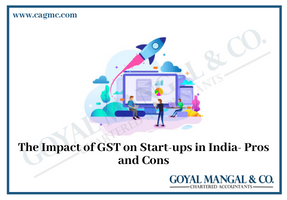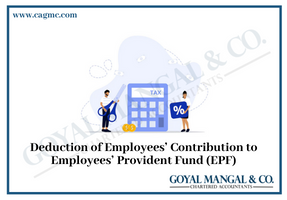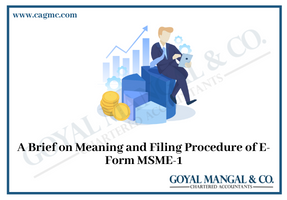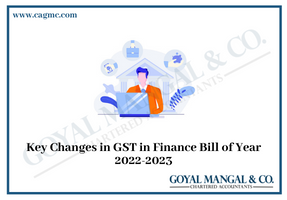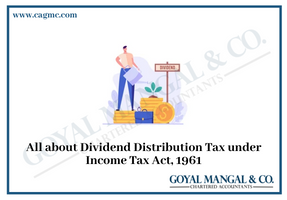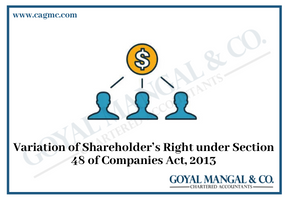GST, or the Goods and Services Tax Act, was introduced as the Constitution’s One Hundred and First Amendment Act in 2016 and is the government of India’s most recent amendment or reform to the indirect tax act. In the long run, it aims to boost the economy and enhance revenue collections. Since its inception, GST…
In India, any employee receives pay after the company deducts a specified amount as PF (Provident Fund). The Employees’ Provident Fund (EPF) is one of the most important programs for employees to create a substantial retirement fund. The Employees’ Provident Fund (EPF) was established in 1952 for the benefit of employees. The EPF Act of 1952 governs…
On January 22, 2019, the Ministry of Corporate Affairs (MCA) issued a notification requiring certain corporations with outstanding dues to MSME enterprises to file Form MSME-1, including the ROC detailing all current outstanding dues (Registrar of Companies). Although many of you wonder and have various queries regarding ‘What Transactions to be mentioned in E-form MSME-1?’…
Every company must file the MSME Form I as a half-yearly return by October 31st, effective for the months of April to September, and again by April 30th, effective for the months of October to March each year, referring to outstanding payments to MSMEs. The MSME I Form is used to give information to the…
On Tuesday, February 1st, 2022, the Union Budget 2022 was presented to Parliament. Finance Minister Smt. Nirmala Sitharaman proposed many reforms in Customs, Central Excise, GST law, and rates while presenting the second digital Union Budget. Unless otherwise noted, all changes in duty rates will take effect on the 1st/ 2nd February 2022 at midnight….
Nirmala Sitharaman, the Finance Minister, announced the Union Budget 2022 on 1st Feb 2022, which includes a slew of infrastructure, e-vehicles, healthcare, and housing reforms. With an expected 9.2% GDP growth rate and GST collections of over Rs.1.4 lakh crore, the future looks bright. Ideas, as well as modifications to the GST law and act,…
A dividend is a payment by a corporation to its shareholders from its profits. A dividend distribution tax was a levy imposed on a corporation’s dividend payment to its shareholders. The DDT was repealed by the Finance Act of 2020, reverting to the traditional taxation system, in which dividends are taxed in the hands of…
The right to partake in a company’s performance, income, and assets come with becoming a shareholder. Many shareholders, however, are unread of their rights. This right, which is held by everyone, has an impact on the company’s management, pre-emptive rights to freshly issued shares, and general meeting voting rights. The share capital of a firm…
The conflict between Russia and Ukraine is predicted to have a substantial impact on India’s economy and trade. The impact will also jeopardise efforts to restore domestic trade from the COVID-19 pandemic, according to the Confederation of All India Traders (CAIT). Russia being major trade partner of India, The pharmaceuticals, organic chemicals, auto components, and…
A firm is a separate legal entity that does not have its own physical existence and so only operates through natural individuals. Directors are a group of professionals recruited by a firm to help it optimize its operations. Directors are held to a fiduciary standard when it comes to the company’s operations. The Companies Act…
